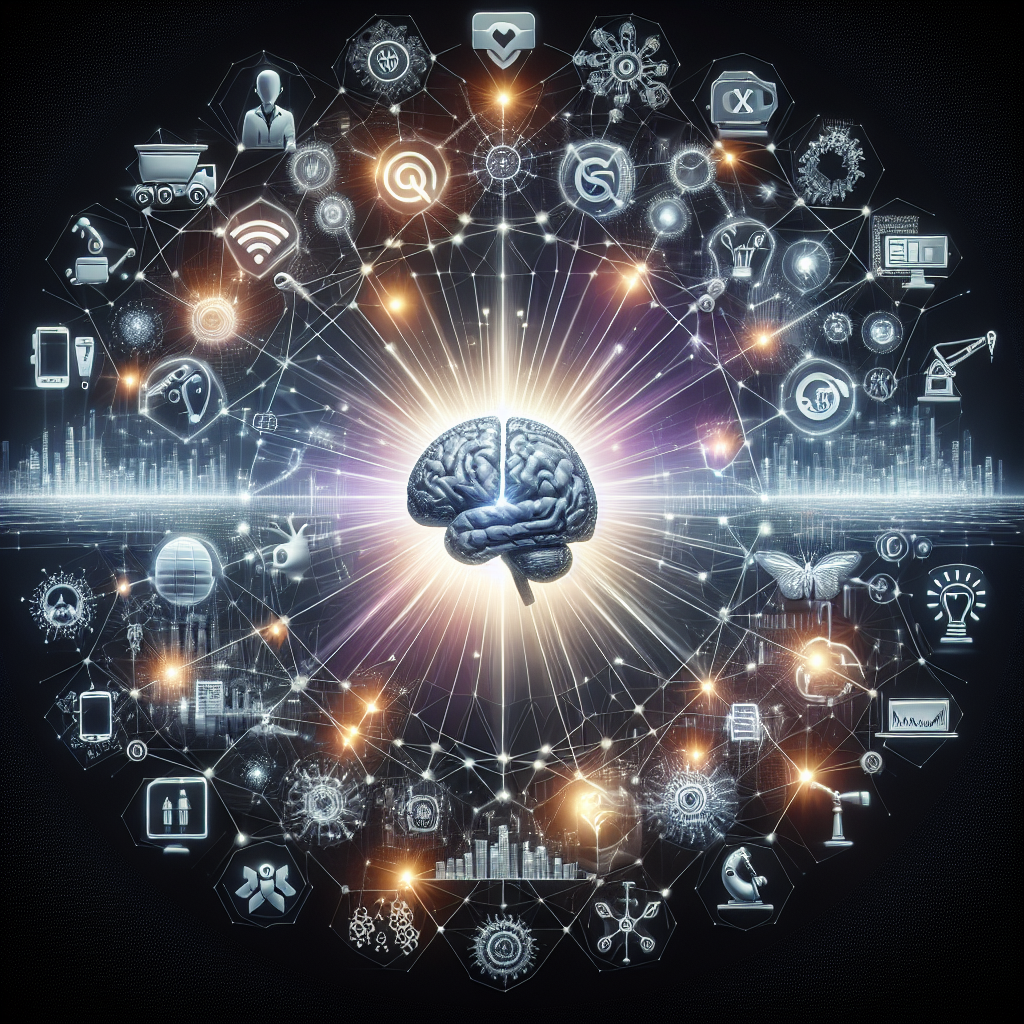Breaking Boundaries: How AGI is Revolutionizing Industries
Artificial General Intelligence (AGI) is a cutting-edge technology that is revolutionizing industries across the world. AGI refers to a type of artificial intelligence that is capable of performing any intellectual task that a human can do. This technology has the potential to transform the way we work, communicate, and live.
In this article, we will explore how AGI is breaking boundaries and revolutionizing industries. We will discuss the impact of AGI on various sectors, including healthcare, finance, manufacturing, and more. We will also address common questions and concerns about AGI and its implications for the future.
AGI in Healthcare
One of the most exciting applications of AGI is in the healthcare industry. AGI has the potential to revolutionize healthcare by improving diagnosis accuracy, treatment effectiveness, and patient care. With AGI, doctors can access vast amounts of medical data and use advanced algorithms to identify patterns and make more accurate diagnoses.
AGI can also help healthcare providers personalize treatment plans for patients based on their unique genetic makeup, lifestyle, and medical history. This personalized approach to healthcare can lead to better outcomes and lower costs.
AGI in Finance
In the finance industry, AGI is being used to analyze market trends, predict stock prices, and detect fraudulent activities. AGI-powered algorithms can process vast amounts of financial data in real-time and make accurate predictions about the future of the market.
AGI is also being used to automate routine tasks in finance, such as data entry, compliance checks, and customer service. By using AGI to streamline operations, financial institutions can improve efficiency, reduce costs, and provide better services to their customers.
AGI in Manufacturing
In the manufacturing industry, AGI is being used to optimize production processes, improve quality control, and increase efficiency. AGI-powered robots can perform complex tasks with precision and speed, leading to higher productivity and lower error rates.
AGI can also help manufacturers analyze data from sensors and other sources to identify patterns and make informed decisions about production processes. By using AGI to optimize their operations, manufacturers can reduce waste, improve product quality, and increase profitability.
AGI in Transportation
In the transportation industry, AGI is being used to develop autonomous vehicles, optimize traffic flow, and improve safety on the roads. AGI-powered systems can analyze real-time traffic data, predict congestion patterns, and suggest alternative routes to drivers.
AGI can also help transportation companies optimize their logistics operations, reduce fuel consumption, and improve delivery times. By using AGI to streamline their operations, transportation companies can reduce costs, increase efficiency, and provide better services to their customers.
Common Questions About AGI
As AGI continues to revolutionize industries, there are common questions and concerns about the technology and its implications for the future. Here are some frequently asked questions about AGI:
Q: What is the difference between AGI and other types of artificial intelligence?
A: AGI is a type of artificial intelligence that is capable of performing any intellectual task that a human can do. Other types of artificial intelligence, such as narrow AI, are designed to perform specific tasks or solve specific problems.
Q: How will AGI impact the job market?
A: AGI has the potential to automate routine tasks and jobs in various industries. While this may lead to job displacement in some sectors, it can also create new job opportunities in fields such as AI development, data analysis, and machine learning.
Q: What are the ethical implications of AGI?
A: AGI raises ethical concerns about privacy, bias, and accountability. It is important for developers and policymakers to address these concerns and ensure that AGI is used ethically and responsibly.
Q: How can businesses prepare for the impact of AGI?
A: Businesses can prepare for the impact of AGI by investing in training and upskilling their workforce, adopting new technologies, and adapting their business models to take advantage of the opportunities that AGI presents.
In conclusion, AGI is revolutionizing industries by breaking boundaries and transforming the way we work, communicate, and live. From healthcare to finance to manufacturing, AGI has the potential to improve efficiency, reduce costs, and provide better services to customers. While there are questions and concerns about the impact of AGI, it is clear that this technology has the power to shape the future of industries across the world.

